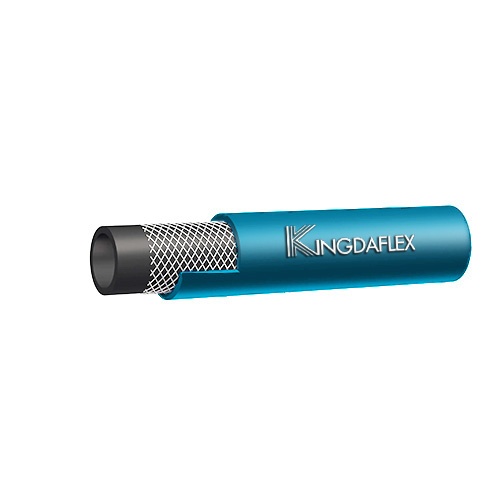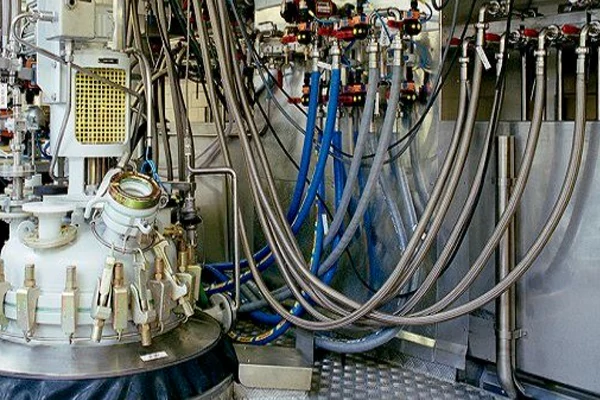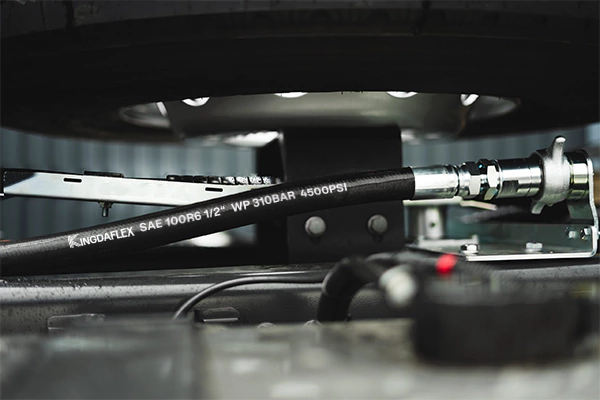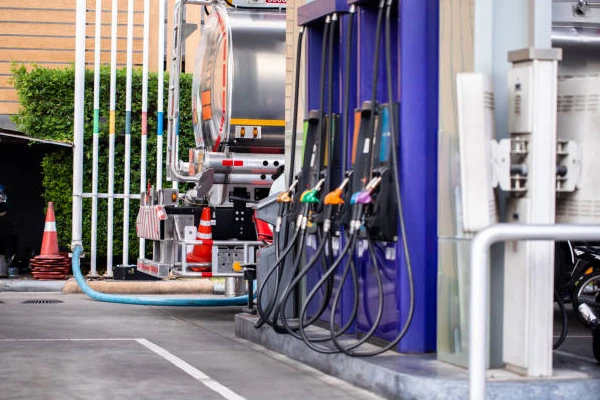Whether it’s safe to interchange oxygen and fuel gas hoses is a critical one in welding and cutting operations. These hoses are designed with distinct properties to handle different gases, each carrying its own set of risks. Understanding the differences between these hoses and the potential dangers of interchangeability is essential for ensuring workplace safety and preventing accidents.
Interchanging these hoses can lead to severe consequences, including explosions and fires. Oxygen and fuel gases react differently under pressure and temperature, and hoses are constructed to manage these specific properties. Using the wrong hose can compromise its integrity, leading to leaks or ruptures. Therefore, adhering to safety protocols and using the correct hoses for each gas is paramount.
What Is Oxygen Hose
An oxygen hose is a flexible tube designed to deliver oxygen gas from a source, such as an oxygen concentrator or cylinder, to a patient’s nasal cannula, mask, or other delivery device. These oxygen hoses are typically made of durable materials like PVC or rubber, ensuring safe and efficient oxygen delivery.
Key characteristics of oxygen hoses include:
- Flexibility: Allows for easy movement and positioning.
- Durability: Resists wear and tear, ensuring longevity.
- Non-toxic: Safe for direct contact with the skin and respiratory system.
- Permeability: Allows for the passage of oxygen gas.
Oxygen hoses play a crucial role in maintaining oxygen levels in individuals with respiratory conditions or those undergoing medical procedures.
What Is Fuel Gas Hose?
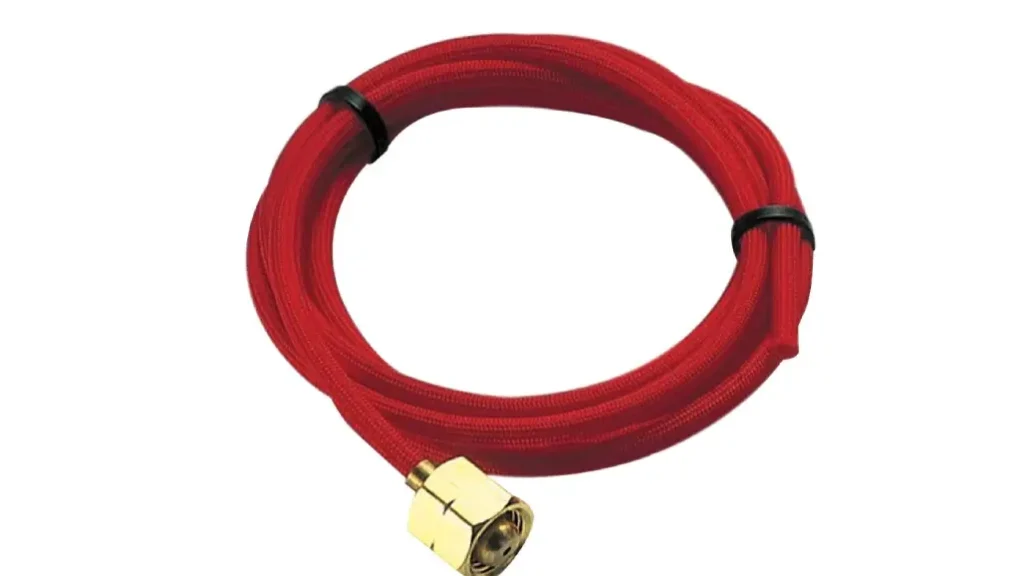
A fuel gas hose is a flexible tube designed to deliver combustible gases, such as natural gas, propane, or butane, to appliances like stoves, furnaces, and grills. These hoses are typically made of materials that are resistant to heat, chemicals, and the corrosive properties of fuel gases.
Key characteristics of fuel gas hoses include:
- Heat resistance: Can withstand high temperatures associated with combustion.
- Chemical resistance: Resistant to the corrosive effects of fuel gases.
- Flexibility: Allows for easy connection to appliances.
- Pressure resistance: Can handle the pressure of fuel gases.
Fuel gas hoses play a vital role in ensuring the safe and efficient delivery of fuel to appliances.
Oxygen Hose vs Fuel Gas Hose
Understanding the distinct differences between oxygen and fuel gas hoses is crucial for ensuring safety and efficiency in welding and cutting operations.
Each hose is designed with specific materials and features to handle its respective gas, preventing leaks and accidents. We will delve into the key distinctions.
Oxygen Hose
Oxygen hoses are designed to transport pure oxygen, which is essential for combustion in welding and cutting processes. These hoses are typically green and constructed from materials that resist oxidation and degradation from high-pressure oxygen. Features include a smooth inner lining to maintain consistent oxygen flow and a robust outer layer to withstand abrasion and environmental factors. Benefits include safe and efficient oxygen delivery, preventing leaks and ensuring consistent flame quality. Applications range from welding and cutting in metal fabrication to medical oxygen delivery.
Fuel Gas Hose
Fuel gas hoses, often red or orange, are designed to transport flammable gases such as acetylene, propane, or natural gas. Their construction emphasizes safety, with materials that resist chemical degradation and prevent gas permeation. Features include reinforced layers to handle the gas pressure and an outer cover that resists abrasion and flame. Benefits involve the reliable delivery of fuel gas to the torch, ensuring a stable flame and consistent cutting or welding results. Applications include welding, cutting, brazing, and other processes that require a flammable gas source.
Key Differences Between Oxygen Hose and Fuel Gas Hose
The primary differences between these hoses lie in their materials and construction, tailored to the properties of the gases they carry. Oxygen hoses prioritize resistance to oxidation, while fuel gas hoses focus on preventing gas permeation and resisting chemical breakdown. This distinction is critical for safety, as interchanging these hoses can lead to leaks, fires, or explosions. Color coding and material differences are critical factors to maintain for safe opperation.
It is Safe to Interchange Oxygen and Fuel Gas Hoses
No! It is not recommended for you to interchange oxygen hose and fuel gas hose.
While oxygen and fuel gas hoses might look similar, they are designed for very different purposes and should never be interchanged. Using the wrong hose can lead to serious safety hazards, including:
1. Fire and Explosion Risk:
- Combustibility: Fuel gas is highly combustible, and oxygen is a necessary component of combustion. Interchanging hoses can create a dangerous mixture that could ignite or explode.
- Increased Oxygen Content: Using an oxygen hose for fuel gas can increase the oxygen content in the gas mixture, making it more flammable and increasing the risk of fire.
2. Health Hazards:
- Oxygen Depletion: Using a fuel gas hose for oxygen delivery can restrict airflow, leading to oxygen deprivation, which can be dangerous, especially for individuals with respiratory conditions.
- Toxic Gas Exposure: Fuel gas hoses are not designed to handle oxygen, and exposure to fuel gas can be harmful to health.
3. Hose Failure:
Pressure Differences: Oxygen and fuel gas hoses are designed to handle different pressures. Using the wrong hose can cause it to fail, leading to leaks and potential hazards.
It is essential to use the correct hose for each gas type to ensure safety and prevent accidents. Always follow the manufacturer‘s instructions and consult with a qualified professional if you have any doubts.
Can You Use the Same Hoses for All Types of Gases
No, you cannot use the same hoses for all types of gases.
Here’s why:
- Chemical Compatibility: Different gases have varying chemical properties. Some gases can react with the materials used to construct the hose, causing it to degrade, leak, or even explode.
- Pressure and Temperature Ratings: Gases operate at different pressure and temperature levels. Hoses must be specifically designed to withstand the specific demands of each gas.
- Flammability and Reactivity: Some gases are highly flammable or reactive. Using the wrong hose can increase the risk of fire or explosion.
Examples:
- Oxygen Hoses:
- Made from materials that resist oxidation and combustion.
- Designed to withstand high pressures.
- Should never be used with fuels or flammable gases.
- Fuel Gas Hoses:
- Compatible with specific fuels like acetylene, propane, or natural gas.
- May not withstand the high pressures associated with oxygen.
Consequences of Improper Hose Use:
- Leaks: Can lead to gas leaks, creating hazardous atmospheres and increasing the risk of fire or explosion.
- Hose Failure: The hose may rupture or degrade prematurely, leading to equipment damage and potential injuries.
- Contamination: Using the wrong hose can contaminate the gas supply, affecting the quality of the work and potentially damaging equipment.
Always use the correct hose for the specific gas application. Refer to the hydraulic hose manufacturer‘s instructions and consult with our qualified professional if you have any doubts.
Conclusion
In conclusion, interchanging oxygen and fuel gas hoses is unequivocally unsafe and poses significant risks. Each hose type is specifically designed with materials and construction suited to its respective gas, preventing leaks and catastrophic failures. Understanding these distinctions is crucial for ensuring workplace safety and preventing accidents.
Using the correct hoses for oxygen and fuel gas is not merely a recommendation but a critical safety protocol. Improper hose usage can lead to explosions, fires, and severe injuries. Strict adherence to safety guidelines and proper hose identification is paramount in any environment where these gases are used.
For reliable and high-quality wholesale oxygen hoses and fuel gas hoses, choose Kingdaflex. We offer a comprehensive range of hoses designed to meet stringent safety standards. Contact us today for a quote and ensure your operations are equipped with the safest and most dependable hoses available.

